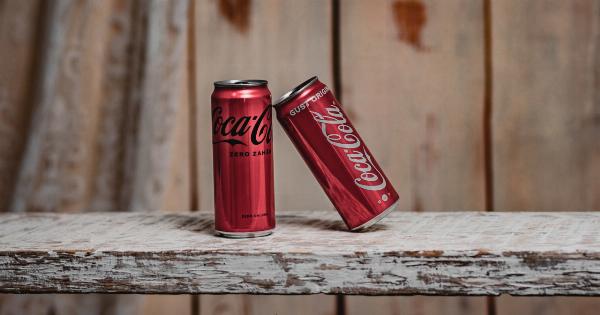Energy drinks have become increasingly popular in recent years, especially among young adults and athletes. They are marketed as a way to boost energy, increase alertness, and enhance physical performance.
While these claims may sound appealing, it is important to understand the potential effects that an energy drink can have on your body.
What are energy drinks?
Energy drinks are beverages that contain high levels of caffeine, sugar, and other stimulants. The caffeine content in energy drinks is much higher compared to other beverages like coffee or soda.
These drinks also contain other ingredients like taurine, guarana, ginseng, and B vitamins which are marketed to improve mental and physical performance.
What are the short-term effects of energy drinks?
The short-term effects of energy drinks can be both positive and negative. Some common short-term effects include:.
- Increased alertness and concentration
- Improved mood and reduced fatigue
- Increased heart rate and blood pressure
- Dehydration
- Insomnia and difficulty sleeping
- Anxiety and restlessness
What are the long-term effects of energy drinks?
The long-term effects of energy drinks can be quite concerning. Some studies suggest that regular consumption of energy drinks can lead to:.
- Cardiovascular problems like high blood pressure and irregular heartbeats
- Increased risk of type 2 diabetes due to high sugar content
- Weight gain and obesity due to high calorie content
- Insomnia and other sleep disorders
- Dependency and addiction due to high caffeine content
- Increased risk of liver damage
Energy drinks and athletic performance
Athletes often turn to energy drinks for a quick boost in physical performance.
While the caffeine in energy drinks can improve endurance, overall performance, and reduce perceived exertion, it is important to note that they also have negative effects which can hinder athletic performance. These include:.
- Increased risk of dehydration
- Increased risk of heatstroke and overheating
- Increased risk of heart problems and heart palpitations
- Negative impact on fine motor skills and reaction time
- Negative impact on sleep quality and recovery
Energy drinks and children
Energy drinks should be avoided by children due to their high caffeine content. According to the American Academy of Pediatrics, children and teenagers should not consume energy drinks, and instead opt for water or low-fat milk.
The high amounts of caffeine and sugar in energy drinks can lead to negative effects on growth and development, like increasing anxiety and interfering with sleep patterns.
Conclusion
Energy drinks are a popular choice for many individuals looking for a quick boost in energy and alertness. However, their high caffeine and sugar content can have negative effects on both short-term and long-term health.
It is important to consume energy drinks in moderation, and to avoid them entirely if you are a child or pregnant. Instead, opt for healthier alternatives like water, herbal teas and natural fruit juices.






























